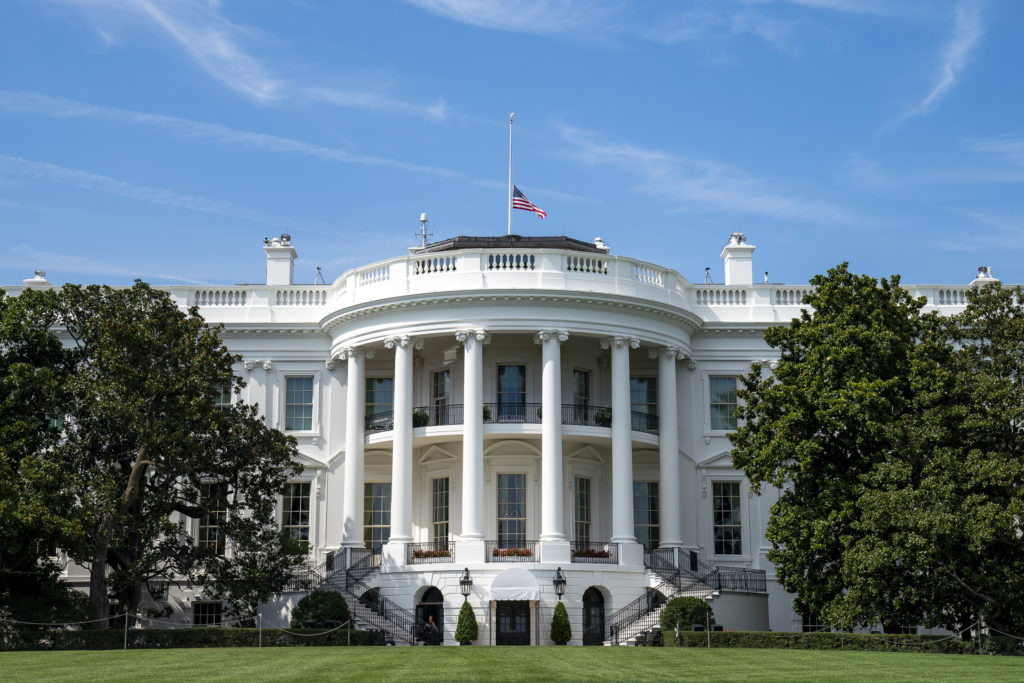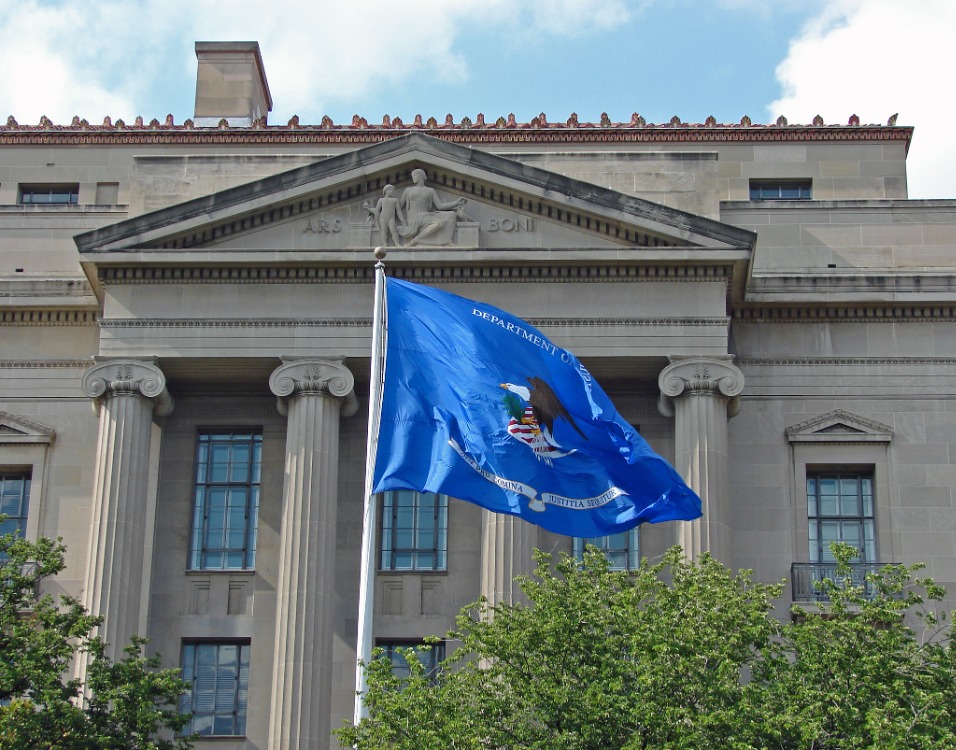What Public Opinion of the Russia Investigations Reveals About Trust in Democratic Institutions
Recent polling data on the Russia investigation underscores the degree to which partisanship taints Americans’ assessment of security politics. Not only are Americans intensely polarized in their assessment of matters related to the investigation into Russian election interference, but their assessments of the validity of intelligence community analysis are also highly polarized. Taken together, these trends pose risks for the perception of the intelligence community as independent and undermine the notion of a fact-based national security policy.
Published by The Lawfare Institute
in Cooperation With

Recent polling data on the Russia investigation underscores the degree to which partisanship taints Americans’ assessment of security politics. Not only are Americans intensely polarized in their assessment of matters related to the investigation into Russian election interference, but their assessments of the validity of intelligence community analysis are also highly polarized. Taken together, these trends pose risks for the perception of the intelligence community as independent and undermine the notion of a fact-based national security policy.
A recent CBS News poll found that just 28 percent of Americans approve of Donald Trump’s handling of matters related to the Russia investigation. By contrast, a whopping 90 percent of Democrats and strong majority (61 percent) of Independents disapprove. At first glance, these figures might appear dire for the president, but in fact, a healthy majority (57 percent) of Republicans support his handling of the Russia investigation.
Asked to qualify the nature of President Trump’s conduct with Russia, an NPR/PBS NewsHour/Marist poll found that a majority (54 percent) of Americans believe President Trump has done something illegal (25 percent) or unethical (29 percent) when it comes to Russia. This is true of 80 percent of Democrats and 58 percent of Independents but just 19 percent of Republicans. The majority of Republicans (73 percent) believe the President has done nothing wrong, compared to just 13 percent of Democrats and 32 percent of Independents.
That these questions elicits a partisan response is hardly surprising. The phrase “matters related to the Russia investigation” is quite broad—encompassing everything from ties between the Trump campaign and Russia, to the conduct of Michael Flynn, to the circumstances surrounding Director Comey’s firing. Despite the efforts of some lawmakers involved in the congressional investigations to remain above the partisan fray, these investigations have become central to the nation’s political drama. Independents voters tend to poll with the Democrats on these issues—a fact which may matter a great deal in the run up to the 2018 midterm elections.
One of the most anticipated episodes in the series of Russia-related investigations was the testimony of former FBI Director James Comey before the Senate Intelligence Committee at the beginning of last month. With the testimony billed as a “political Super Bowl,” Americans’ acutely partisan assessment of the proceedings is to be expected: a Quinnipiac University poll found that a slim majority (54 percent) of Americans believe that President Trump fired former FBI Director Comey to disrupt the FBI’s investigation into possible coordination between the Trump campaign and the Russian government. This figure includes 89 percent of Democrats, 55 percent of independents, and just 13 percent of Republicans. By contrast, 39 percent of Americans believe that President Trump fired Director Comey because he had lost confidence in Comey’s ability to lead the FBI well. Support for this position breaks along similarly partisan lines, including a whopping 79 percent of Republicans, 38 percent of Independents and just six percent of Democrats.
Though unsurprising, the intensely partisan nature of the investigations is a source of legitimate concern, especially insofar as it degrades Congressional capacity to conduct meaningful, impartial oversight of the intelligence community. In a recent op-ed, Dan Glickman, the former Chairman of the House Permanent Select Committee on Intelligence, expresses concern that “for the first time ... unhealthy partisan divisions by some are seriously impacting the independence and objectivity of the work of the House Intelligence Committee.”
As Lawfare readers are no doubt aware, in January of this year, the Office of the Director of National Intelligence (ODNI) released an unclassified version of its report to President Obama on the nature of Russian meddling in the 2016 Presidential election. This report, based on the assessments of NSA, CIA, FBI, and the ODNI concludes that Russian President Vladimir Putin very likely implemented a campaign to influence the outcome of the 2016 election by attempting to undermine faith in the democratic process and to denigrate Secretary Clinton. In a CNN interview, Clapper affirmed that the evidence supporting this conclusion was “overwhelming” and that he was “absolutely” sure that Russia was behind the election meddling.
And yet, according to an NBC News/Wall Street Journal survey, just 52 percent of Americans believe that Russia tried to interfere in the 2016 election. Of those that agree, 78 percent are Democrats while just 26 percent are Republicans. Thirty-six percent of Americans (11 percent of Democrats and 65 percent of Republicans) do not believe that the Russian government interfered with the 2016 Presidential election, while 11 percent (10 percent of Democrats and nine percent of Republicans) report that they are “unsure.” Sliced another way, 74 percent of Republicans, 47 percent of Independents, and 21 percent of Democrats do not accept the findings of the intelligence community on this issue as a matter of fact.
One obvious explanation for these findings is that President Trump has repeatedly cast aspersions on intelligence community findings related the to Russia. At a news conference just yesterday, he responded to a yes-or-no question about Russian interference in the 2016 election by suggesting that “nobody really knows” if Russia was solely responsible. The president’s refusal to affirm the intelligence community’s findings pushes that analysis toward the realm of political subjectivity. These data might also reflect Americans’ distrust of institutional authority more broadly—a tendency that pollster Guy Molyneux characterizes as one of the “least appreciated” characteristics of the American electorate, and which, he writes, Trump was remarkably adept at exploiting over the course of his presidential campaign.
Elsewhere on Lawfare, Joshua Rovner wrote eloquently about the adverse short- and long-term consequence of the politicization of intelligence community analysis, concluding that for members of the intelligence community “any hope of playing a productive role in the policy process rests on the belief that policymakers [Democrats and Republicans] will value the community’s input without automatically suspecting its motives.” The politicization of fact-based analysis should be of utmost concern to those who value the institutional legitimacy of the intelligence community and of fact-based policy prescription and analysis in the national security sphere.





